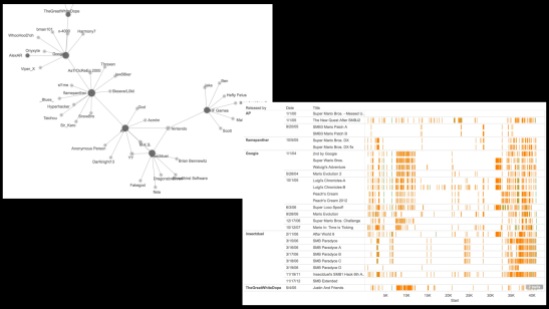
On January 21, 2015 (3:00-4:00pm), the S-1 Speculative Sensation Lab will be presenting a collaborative artwork titled Manifest Data at The Edge, the new space in Duke University’s Bostock Library devoted to “interdisciplinary, data-driven, digitally reliant or team-based research.”
Manifest Data brings together programmers, 3-D printing specialists, sculptors, and theorists to reflect on the production of value in the digital age, the materiality of information, and the (non-)place of mediated relations.
Code written by Luke Caldwell captures data that would otherwise be leaked as we browse the web, and exploited by the likes of Google and Facebook; in a second step, this data is transformed into a coordinate system that can be mapped as a 3D object. In collaboration with other lab members, artist Libi Striegl prepares and prints out the resulting “data creatures.” Karin Denson has reimagined these forms as beautifully grotesque garden gnomes — thus reappropriating a figure that has become a symbol for 3D printing and a marketing tool for companies like MakerBot. Together, Karin and I have further translated these figures into the hybrid spaces of augmented reality, planting the gnomes strategically and in such a way as to instantiate a very personal system for creating value that — dare we hope? — is immune to corporate cooptation. Lab members David Rambo and Max Symuleski, among others, round out the project with artistic-theoretical statements connecting the project of Manifest Data with a critical questioning of contemporary manifest destiny and a new phrenology for the digital age.
The S-1 Lab is directed by Mark B. N. Hansen and Mark Olson in the Media Arts + Sciences Program at Duke. The Manifest Data project was initiated by Amanda Starling Gould, who has continued to provide it with a guiding aesthetic-theoretical vision.
More information about the presentation, which happens to be the inaugural presentation in the “What I Do With Data” series of the Digital Scholarship Services at Duke, can be found here.










